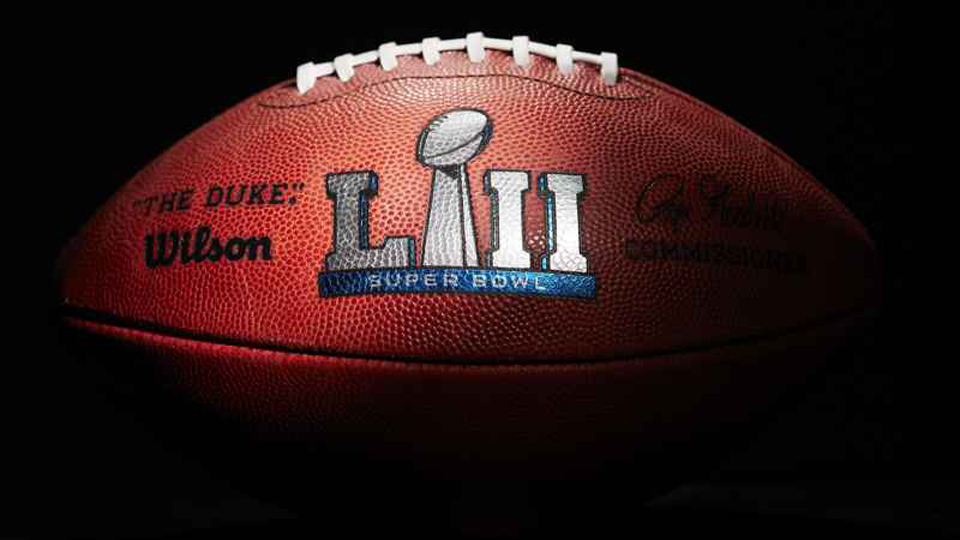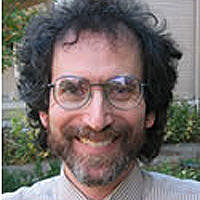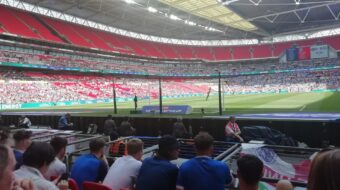
MINNEAPOLIS (PAI)—Not unlike the complicated relationship between pro football fans and the Minnesota Vikings football team, Minnesota workers have a complicated relationship with Super Bowl LII (52).
The net result: Lots of work for Twin Cities unionists, lots of parties for well-heeled Super Bowl corporate patrons – and possible protests by low-wage workers seeking to make sure they’re properly paid for their labor.
Years of debate preceded building the new Vikings football stadium which is the game’s site — arguments which haven’t been forgotten and likely never will.
To proponents, the new US Bank stadium delivered on construction jobs, delivered on $1 billion in surrounding development, and now has delivered on bringing the Super Bowl to the Twin Cities on Feb. 4.
Super Bowl LII in Minneapolis will be a union event — from the workers who built the stadium, to the players on the field, to the stagehands running the lights and sound, to the food vendors in the stadium, to the bus and light rail operators getting ticket-holders to and from the game, to the staff serving guests at the major downtown hotels.
For several unions, the coming of the Super Bowl also brought increased leverage for organizing campaigns and clout at the bargaining table, and two threatened strikes. The NFL Players Association even weighed in on the side of workers in two local disputes.
DeMaurice Smith, executive director of the NFLPA, sent letters in January putting bosses at the University of Minnesota and Franklin Street Bakery on notice that the football players stand squarely — and publicly — on the side of working people in Minnesota.
Through their union, the athletes stood in solidarity with bakery workers fighting for a union in Minneapolis and with Teamsters weighing a strike at university campuses statewide.
With the Super Bowl now at hand, workers and their representatives from a variety of sectors spoke with the Labor Review about what the Super Bowl means for their work.
“The impact on our industry is huge — not just at U.S. Bank Stadium but at our 22 union hotels, which are all full for 7-10 days around the event,” reported Wade Luneberg, political director for Unite Here Local 17. “All our sports venues and convention centers are both busy.”
“Even more unique,” he added, “our 1,300 workers at the airport are going to be working round the clock — more than they already do.” One, Local 17 member Jill Gergen, who has worked 21 years at the airport for HMS Host, reported, “I’m taking a full extra shift. From a labor perspective, that’s awesome.”
Johanna Harley, 17-year Local 17 member, said “It’s really, really exciting to be able to work an event like the Super Bowl.” She’ll be an attendant at a stadium suite and working as a banquet server for a Super Bowl party at the Minneapolis Hilton.
IBEW Local 292 members were impacted by preparations for the Super Bowl, not just at the stadium, but also at the Twin Cities’ international airport and at the Mall of America. 20-year Local 292 member Myles Lembke has been working full-time at the airport for a year for Hunt upgrading the cellular antenna system, upgrading the security system, and upgrading other systems before the Super Bowl. “That’s been the focus. Get it done by then,” he said.
“I think the Super Bowl has been fantastic for labor in general in the metro area,” he said. “Everybody I’ve been talking to has had extra work because of it.”
Terrence Mohs, an 8-year member of IBEW Local 292, began as a journeyman electrician working to build the stadium. Now a full-time foreman there for Gephart, he said “the Super Bowl takes a lot more power than the standard game does. We will have somewhere between 18-30 licensed electricians on site the day of the game…to make sure the show keeps going…”
“I think the place will be an awesome place for the Super Bowl this year,” Mohs said. “Me and my guys are excited to work it; it’s a once in a lifetime experience.”
Bill McCarthy, now president of the Minnesota AFL-CIO, is one of the labor leaders who led efforts to get the new stadium approved, and later was appointed to serve on the stadium commission tasked with overseeing the project.
“Right from that point, the stage was set for making sure labor was present and we would have a project labor agreement that worked for the trades,” he said. “Following that, [the focus] became working with the management company to make sure it was wall-to-wall union.”
A committee of unions met to coordinate Super Bowl preparations and, McCarthy said, “our partnership in this with the NFL has been really good.”
“Our perspective is all about the workers and being paid a fair wage and that is happening,” McCarthy said. Still, not everyone is convinced.
The Centro Trabajadores Unidos en Lucha (CTUL) and other labor and community organizations plan a “Super Bowl Week of Actions” to demand the corporate elites financing the Super Bowl festivities do much more “to invest and give back to our communities.”
Hamilton Nolan, writing on the Splinter blog about CTUL, said co-leader Veronica Mendez-Moore spent one day in a meeting of a Minneapolis advisory board with city staffers and Target Corp., “discussing how to prevent any workers from being screwed out of their wages during the course of Super Bowl week.” The next day, he added, workers met at CTUL’s office, “where they scrutinized the logistics of Super Bowl week to see how working people would be inconvenienced by security and transportation snags, and discussed whether they should plan a public protest – to the world’s assembled media – in response.”
And Chelsie Glaubitz Gabiou, president of the Minneapolis Regional Labor Federation, is welcoming the Super Bowl, touting the area’s “work and collective values on a world stage,” while also worrying about the union workers – on and off the Super Bowl field – who should get their due and the low-wage workers who should get paid more than they now earn.
“It’s important to focus on the people who make this major event happen,” she wrote in the Labor Review. “It’s union workers who hang the lights, clear the snow, prepare and serve the food, ensure safety, and stay late to tear down and clean up. Even the star football players are members of our affiliate, the NFL Players Association.”
The two Super Bowl teams will play “in a state-of-the-art facility built by local union labor and staffed by skilled unionized hospitality professionals. It’s taken years of work and leadership to ensure that the Super Bowl was brought to you by a unionized workforce in every sector in which we have membership.”
But “we must ensure promised economic development” from the game and associated events “is shared broadly and actually gets to the workers who need it most,” Glaubitz Gabiou also warned. “While these large-scale events roll out the red carpet for their corporate partners, they take advantage of the workers who are too often victims of low-road subcontractors and temporary work agencies that don’t meet our high Minnesota standards.”
“This presents an opportunity to shine a light on the immediate need to improve the enforcement of new and existing labor standard laws at all levels. We need to enforce the new Minneapolis minimum wage and sick time laws, during and after the Super Bowl.”












Comments